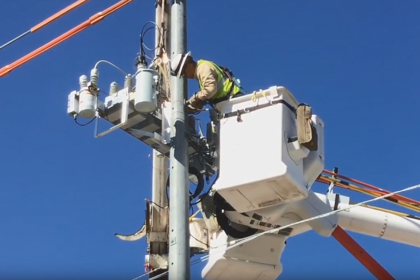
Case summary written by Snazo Tuswa and checked by Jordan Dias
27 November 2020
BACKGROUND:
Mitsubishi Hitachi Power Systems Africa (Pty) Ltd (“the Appellant”) as a contractor, concluded an agreement (“the Main Contract”) with Eskom Holdings SOC Limited (“the Second Respondent”), as the employer. The Appellant then proceeded to concluded subcontracts with Murray and Roberts Ltd (“the First Respondent”) to carry out a portion of the work. The agreements concerned the construction of the Medupi and Kusile power stations.
The Appellant and the Second Respondent concluded a further agreement, known as the Incentive Agreement. The First Respondent, not being a party to the Incentive Agreement, sought the disclosure of the Incentive Agreement and the relevant details in respect to this agreement including the actual benefits received by the Appellant from the Second Respondent. The First Respondent sought this disclosure in terms of clause 11.3 of the subcontract concluded with the Appellant.
Clause 11.3 provides as follows:
“The contractor shall, upon receiving any contractual benefits from the employer under the contract, pass on to the subcontractor such portion thereof as may relate to the subcontract works.”
The First Respondent referred the dispute to a Dispute Adjudication Board wherein the adjudicator found that, although the First Respondent enjoyed a contractual right to the disclosure of the Incentive Agreement, without the Second Respondent’s consent, the Appellant is bound by the Main Contract insofar as to keep the Incentive Agreement confidential. Therefore, the adjudicator stated that compelling the Appellant to make the disclosures would place it in breach of the Main Contract with the Second Respondent.
The First Respondent launched an application in the High Court to secure the disclosure is sought. The Court order directed the Appellant to disclose the Incentive Agreement and all relevant details relating thereto, including the actual benefits received from the Second Respondent.
Court held
On appeal, the Supreme Court of Appeal was required to determine three issues: firstly, the First Respondent’s contractual right to disclosure (whether the Appellant owes the Second Respondent a duty to keep the Incentive Agreement, and the details pertaining to the agreement, confidential) and if so, did this duty preclude the First Respondent from exercising its right of disclosure and. lastly, the scope of the First Respondent’s right and the appropriate remedy.
In respect to the first issue, the Court held that the Appellant, as the recipient of the contractual benefits, has a duty to pass on to the First Respondent its share of the benefits. The overarching obligation to act in good faith renders the Appellant liable to make the disclosures. The Court held that clause 11.3 gives rise to a pass-on obligation owed by the Appellant to the First Respondent under the subcontract. This pass-on obligation is an incident of its bilateral subcontract with the First Respondent.
The Court then considered whether the entitlements in terms of clause 11.3 require the Appellant to make the disclosures sought by the First Respondent. The Appellant argued that if the First Respondent has a claim then it must make that claim, however, the Court held that the First Respondent cannot make a claim based on speculative assumptions. The Court stated that the First Respondent seeks disclosure in order for the First Respondent to know whether it has claimed. The Court held that contracts should be interpreted on the basis of commercial efficacy. The subcontracts concluded between the Appellant and the First Respondent only make commercial sense if the Appellant is required to provide sufficient information to permit the First Respondent to assess its entitlements and claim what is due to it.
The Court held that a refusal to make disclosure fails to accord with the principle of good faith, therefore the Court found that the First Respondent enjoys the contractual right to disclosure, so that it may ascertain and enforce its rights in terms of clause 11.3.
On the issue of confidentiality, the Court held that the First Respondent, as a subcontractor, does not qualify as a third party for the purposes of determining the scope of the Appellant’s obligations under clause 1.12. This clause provides that the Appellant, as the contractor, may not disclose or make available information regarding the contract or the project to any third party.
In determining what remedy is available to the First Respondent, the Court held that the First Respondent cannot secure a disclosure remedy that is greater than the right it enjoys. Therefore, the Appellant should only disclose those portions of the Incentive Agreement that are relevant to the First Respondent’s entitlement to contractual benefits in terms of clause 11.3. Moreover, First Respondent is only entitled to information that will permit it to ascertain the contractual benefits received by the Appellant which relate to the subcontract works.
The appeal was dismissed with costs and the Appellant was directed to disclose the relevant information to the First Respondent.
Value
The Supreme Court of Appeal enforced the principle of good faith and confirmed that it is integral to how parties make and perform their contracts in the spirit of partnership, cooperation and trust.

